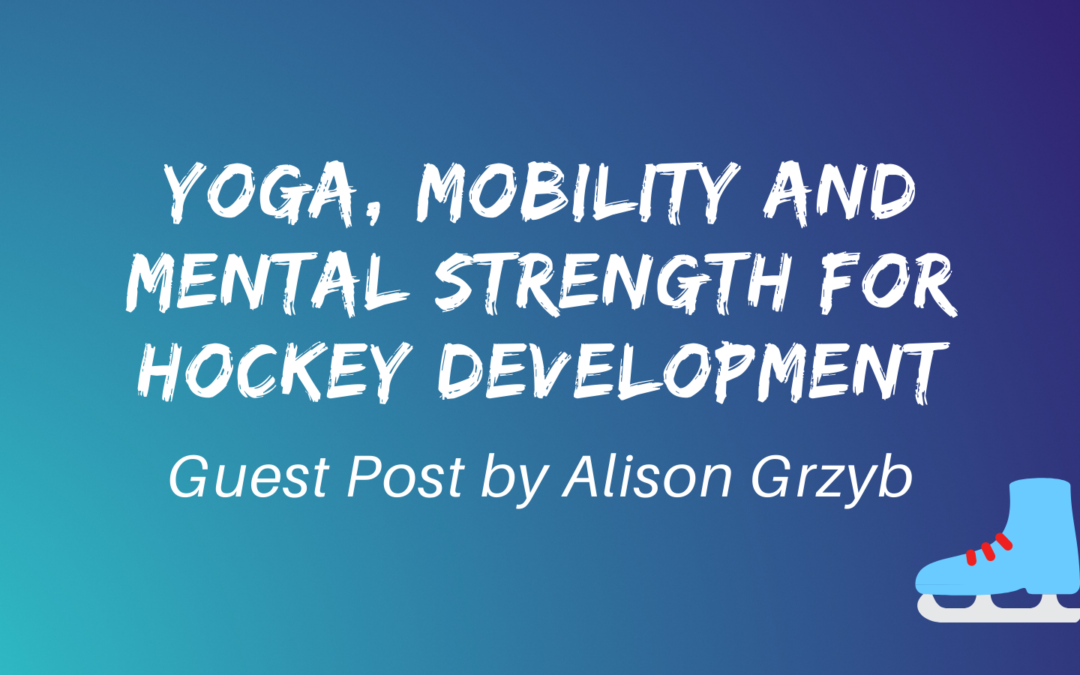Any athlete that is present, positive, prepared and physically powerful will have the best opportunity to reach their peak performance. In today’s world, one, let alone all four of those words are not easy to achieve with academic demands, social media pressures/influencers and competitive school/club programs. My passion stems from the need for all athletes to take care of their minds and bodies. These skills will serve them throughout their youth hockey years and into their adolescent and adult lives.
With an undergraduate degree in kinesiology and a master’s degree in psychology, I have been studying movement and the mind for 15 years. Early in my career, I gravitated towards physical training in sports, and as a runner, I was drawn to the benefits of yoga and mobility for injury prevention. I completed two sport specific yoga certifications, one kid and teen training and most recently I obtained a certification in Baptiste-inspired yoga. My trainings include MYP athletes in Miami, FL, JOGA in Toronto, Ontario (Canada), Karma Kids Yoga in New York City and Lyons Den Power Yoga, also in New York City. I currently blend all of my yoga, mindfulness and sports psychology knowledge into every session I teach.
I entered the hockey world in 2015 when my sons began to play the sport, and I fell in love with the athleticism, fast pace and team cohesiveness that makes hockey so unique. I immediately realized the mental skills that student athletes need to succeed. The majority of competitive hockey teams have strength/mobility coaches for dry-land and skills coaches for on-ice training, but no mindset coach to teach skills to be mentally strong. 80% of sport is mental and 20% physical so when the most skilled player can put the puck in the net but his/her attitude is the worst and they fall apart when things don’t go as planned, none of the skills and physical strength matter. I believe confidence and resiliency are the most important attributes of any athlete and better yet, any human being! My mindset and mindfulness lessons include those topics among many others such as leadership, anxiety, focus and team culture. Oftentimes, we as adults are working on the same mental skillset which makes lessons relatable for the coaches. Youth athletes cannot be expected to inherently have these skills, but they can be taught with dedication and patience.
The active recovery physical areas that need the most focus for hockey players are hip, shoulder and thoracic spine mobility, core strength and breath control. Isolating smaller muscle groups around the joints and keeping deep core muscles engaged is important to prevent injury and maximize strength and power. Last but not least, I break down breathing in two ways. Performance breath is used to activate rib mobilization and increase lung capacity. Mindfulness breath, along with performance meditation, is used to relax and recover. Hockey is a fast paced, physical and intense sport, therefore recovery is very important for both injury prevention and to balance the nervous system. Sessions are designed to meet the team or player’s individual needs. It is so rewarding to see players get stronger on the ice after focusing on mobility and recovery.
I began my career in the NHL in 2018 and recently started my own business to use all of my education and blend mindset and mindfulness with yoga/mobility training. Working with the New York Rangers throughout the quarantine months (March – July 2020) allowed me to explore virtual training with success and train players all over the world. I have several players as private clients and we work individually on their physical and mental goals. I also work with youth hockey programs in the North Jersey area. No matter if the athlete I’m working with is a
5-year-old beginner or a 35-year-old professional, they get 100% of my passion, warmth and knowledge.
“People may hear your words, but they can feel your attitude,” by John Maxwell.
A true leader is rarely the loudest, but more often someone who leads themselves first and by doing that, gives those around them a feeling of empowerment. My goal is to create leaders in hockey and in life.
